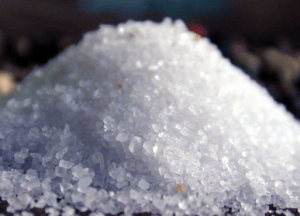WHO issues new global benchmarks on salt intake
 A new set of global benchmarks for sodium levels in more than 60 food categories that would help countries reduce sodium contents in foods to improve diets and save lives has just been released by the World Health Organization (WHO) in a document titled: “WHO Global Sodium Benchmarks for Different Foods Categories.”
A new set of global benchmarks for sodium levels in more than 60 food categories that would help countries reduce sodium contents in foods to improve diets and save lives has just been released by the World Health Organization (WHO) in a document titled: “WHO Global Sodium Benchmarks for Different Foods Categories.”
It is to serve as a guide for countries and industry to reduce the sodium content in different categories of processed foods.
Most people consume double the WHO recommended 5g of daily salt intake, putting themselves at greater risk of the heart diseases and strokes that kill an estimated three million people each year.
A statement made available to the ghanabusinessnews.com said around the world, consumption of processed food is a rapidly increasing source of sodium.
“WHO’s harmonized global benchmarks will show countries how they can progressively lower their targets, based on their local food environments, and encourage industry to lower the sodium content in processed foods accordingly and advance toward the WHO goal of 30% reduction in global salt/sodium intake by 2025,” the statement added.
The WHO Global Sodium Benchmarks targets a wide range of categories of processed and packaged food products that significantly contribute to overly salty diets.
Processed and packaged bread, savoury snacks, meat products and cheese are among the categories of high-sodium food products identified for the new global benchmarks, it noted.
Adding that reducing sodium content by reformulating processed foods is a proven strategy to reduce population sodium intake, particularly in places where consumption of processed foods is high.
It can also prevent processed foods from becoming a major source of sodium in countries where consumption of these manufactured foods may be rapidly increasing.
The statement said The United Nations Food Systems Summit in September and the Nutrition for Growth Summit in December this year, would convene a wide range of stakeholders to transform food systems by providing opportunities for national, regional and global efforts to improve the food environment and make commitments including to limit the sodium content in processed foods.
The WHO started to develop global benchmarks for sodium levels in foods across different food categories in 2020. An estimated 11 million deaths globally are associated with poor diet, 3 million of which are attributable to high sodium intakes.
It is now known that excess dietary sodium intake increases blood pressure and consequently increases the risk of cardiovascular diseases, which are the leading cause of non-communicable diseases (NCD) deaths worldwide, responsible for 32% of all deaths.
According to the WHO, reducing sodium intake is an “effective way to lower blood pressure and thus reduce NCDs such as cardiovascular diseases, adding that it also reduces other complications associated with high sodium intakes such as chronic kidney disease, obesity, gastric cancer and liver diseases.”
By Eunice Menka
Copyright ©2021 by NewsBridge Africa
All rights reserved. This article or any portion thereof may not be reproduced or used in any manner whatsoever without the express written permission of the publisher except for the use of brief quotations in reviews.
